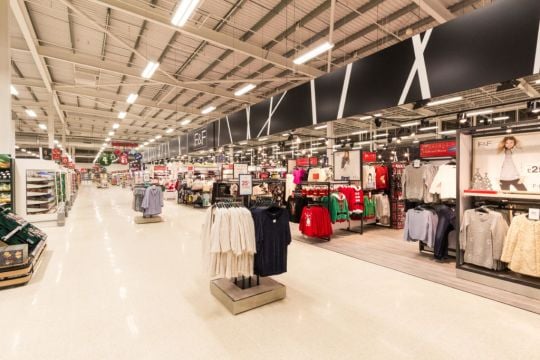Tesco is facing a landmark lawsuit over allegations that migrant workers were forced to work 99-hour weeks on illegally low pay, making jeans for the supermarket giant’s F&F fashion brand.
A group of 130 former employees at VK Garment Factory in Thailand are suing Tesco and auditing specialists Intertek for “alleged negligence and unjust enrichment”.
The allegations, which were first reported following an investigation by The Guardian, were made by workers who produced jeans, denim jackets and other F&F clothing for adults and children for the Thai branch of Tesco’s business between 2017 and 2020.
Tesco completed the sale of its Thailand and Malaysia business in December 2020 for around £8 billion.
Tesco and Intertek face claims of forced labour and debt bondage at F&F fashion factory in Thailand. A letter before action detailing the allegations has been sent on behalf of 130 migrant factory workers, represented by @ollyholland and Anna Barr https://t.co/xwKr4TqLRI pic.twitter.com/SsHfR7M9Ru
Advertisement— Leigh Day (@LeighDay_Law) December 18, 2022
VK Garment Factory is in Mae Sot, a city near the Myanmar border, which developed a workforce of predominantly Burmese migrant workers.
The employees have already pursued a claim in Thailand against the factory.
In the UK legal case, led by law firm Leigh Day, it is claimed that the migrants were paid at most around £4 a day, working seven days a week, and were “trapped in a cycle of forced labour”.
Bosses controlled their migrant worker permissions and housed them in poor conditions such as sleeping on cement floors with little or no privacy due to there being no locks, walls or ceilings, it is alleged.
The employees claim they had to work from 8am to 11pm Monday to Saturday, and on Sundays were permitted to finish work at 5pm unless orders meant they had to work longer.
The legal claim said that, despite both Tesco and Intertek carrying out audits at the factory, the unlawful activities that are reported to have been taking place were not identified.
Tesco was not involved in the day-to-day running of the factory but the supply chain workers are nevertheless bringing the case directly against the business.
A Tesco spokeswoman said: “Protecting the rights of everyone working in our supply chain is absolutely essential to how we do business.
“In order to uphold our stringent human rights standards, we have a robust auditing process in place across our supply chain and the communities where we operate.
“Any risk of human rights abuses is completely unacceptable, but, on the very rare occasions where they are identified, we take great care to ensure they are dealt with appropriately, and that workers have their human rights and freedoms respected.
“The allegations highlighted in this report are incredibly serious, and, had we identified issues like this at the time they took place, we would have ended our relationship with this supplier immediately.
“We understand the Thai Labour Court has awarded compensation to those involved, and we would continue to urge the supplier to reimburse employees for any wages they’re owed.”
An Intertek spokesman said: “As a responsible business, we take the matters that have been raised very seriously.
“We also note these matters are currently the subject of Thai and English legal proceedings, and therefore we are not able to comment while these proceedings are ongoing.”







